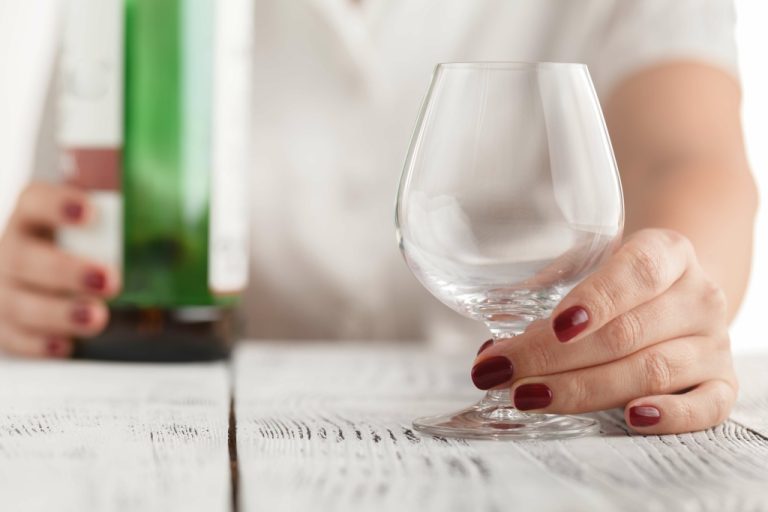24 Oct 5 Ways Quitting Drinking Affects Your Brain
As a loved one of someone with an alcohol addiction, try to be encouraging and provide emotional support. When is it common in society, it can be hard to tell the difference between someone who likes to have a few drinks now and then and someone with a real problem. Anecdotal evidence suggests the effects of a detox from alcohol are gradual over the entire four-week process; so there’s not a set timeline for each to kick in at one time.
- Because the liver is a tolerant organ, he said positive changes can occur within weeks of going dry.
- Giving up drinking may let you focus on your relationships, work, and health.
- My patients are aged 18 and over and typically belong to higher socio-economic groups; around half of them have private medical plans, while the others are self-paid.
- Like other symptoms, the impact on mood depends on the amount and duration of your alcohol use.
- I discovered self-worth, the joy of helping others, the gifts of parenting and grandparenting, and most importantly the ability to live a meaningful and purposeful life with integrity.
- During the 12- to 24-hour time frame after the last drink, most people will begin to have noticeable symptoms.
My name is John Bruna, co-founder of the Mindfulness in Recovery® Institute, and more importantly, a grateful member of the recovery community. Of course, I did not achieve continuous recovery through willpower or my own efforts, but through the guidance and caring support of countless others that selflessly taught me how to live through the 12 Steps. This is an opportunity for your brain power to grow and evolve as you begin to participate in the same activities as you have before, but while sober. Alcohol abuse creates a complex imbalance of dopamine in the brain. Rational decision-making and impulse control are crucial in fighting addiction, and luckily these powerful functions of the brain will return as you begin to heal. Our experts continually monitor the health and wellness space, and we update our articles when new information becomes available.
How does my physical health improve when I stop drinking?
With the acquisition of each new coping skill and the evolution of emotional maturity, your brain builds new connections and creates pathways for healthy interactions in the future. “Again, depends on what the baseline alcohol consumption is,” she said. Other individuals may wish to join support groups or programs such as Alcoholics Anonymous. Finally, the National Institutes of Health (NIH) has an excellent resource on how to find treatment for AUD.
- Withdrawal symptoms can start about 8 hours after your last drink, before peaking 1, 2, or 3 days after your last drink.
- That’s why it’s common for people who use alcohol to be malnourished.
- What’s even worse is that many of those deaths are completely preventable.
- Someone with an alcohol addiction who has remained sober for months or years may find themselves drinking again.
Long-term alcohol consumption can lead to significant changes in the brain, including the loss of brain tissue, and a decrease in overall brain size. This can result in cognitive impairments such as memory loss, difficulty learning new information, and a reduced ability to plan and make decisions. Alcohol is a widely consumed drug that affects the brain and body in various ways. When consumed, it passes through the bloodstream and reaches the brain, where it can alter neurotransmitter levels and brain chemistry.
Getting Help for Alcohol Withdrawal
While that amount is generally thought to be okay for your health, having more than that on a regular basis isn’t. The thing is, it’s easy to go above moderate levels of drinking is a mainstay of your social life. After all, a serving of alcohol is a 12-ounce beer, 5-ounce glass of wine, or 1.5 ounces of hard alcohol.1 Most people have more than that at happy hour or on the weekend. A healthcare provider will also run tests to rule out other medical conditions that have similar symptoms of alcohol withdrawal or occur alongside withdrawal.

So, giving up alcohol may help you to improve your relationships with friends and family. Both the World Health Organization (WHO) and the Canadian Centre on Substance Use and Addiction have determined that there is https://ecosoberhouse.com/ not safe amount of alcohol. One of the financial benefits of giving up alcohol is that you’ll likely have more money to spend. This is because alcohol is a costly habit, so giving it up can free up some extra cash.
What happens when you stop drinking for 30 days
A glass of regular beer has about 150 calories, and a serving of wine has about 120. On top of those mostly empty calories, alcohol ramps up your appetite. It also makes you more impulsive, and less able to resist the fries and other temptations on the menu. So when you stay away from alcohol, the number on your scale may well start moving down. For many chronic drinkers, alcohol becomes a crutch to handle many situations and emotions in daily life.
“Alcohol dependency, when not treated appropriately, can result in fatal consequences, so it’s better to have medical support in the process,” Komal Deepak, RDN, cautions. If you think that throwing back a few extra rounds of shots on the weekend isn’t going to negatively affect your immune system, health experts would disagree. According to a 2015 article published in Alcohol what happens when you stop drinking alcohol Research, immune system impairment is not only seen in people who drink large amounts of alcohol regularly but also in those who binge drink occasionally, too. Once medical professionals have addressed all immediate risks to the person, outpatient care can begin. This may include visiting support groups and having regular check-in meetings with a healthcare professional.
Another benefit of giving up alcohol is that your mind may be clearer. This is because alcohol can cause changes in brain chemistry, which can lead to cognitive problems. If you struggle to sleep, talk to your doctor about solutions that might help. While giving up alcohol can be a challenge, it’s important to remember that the benefits are well worth it.


No Comments